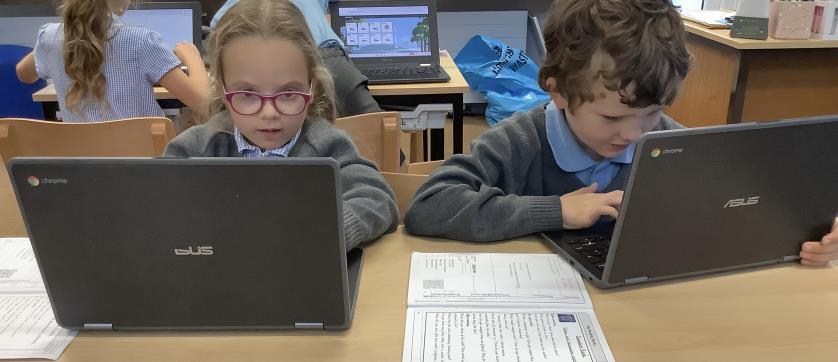
Year Three Curriculum NewsletterSpring 2025



Year Three Curriculum NewsletterSpring 2025

For behold, the winter is past; the rain is over and gone. The flowers appear on the earth, the time of singing has come, and the voice of the turtledove is heard in our land.
Song of Solomon 2:11-12





In our Religious Education lessons this term, we will be exploring the experience of a community, as an essential part of life for all ages and faiths. We will discover the journey through a year, in particular the Liturgical year, considering how the Christian family journeys with Jesus throughout the Church's year. This will then lead us into learning about the Eucharist, with a specific focus on 'Listening and Sharing'. The children will consider our relationships with one another and the praise and appreciation of experience, allowing us to relate to others on a deeper level. The children will know and understand the importance of listening and sharing with others with a focus in listening to the Word of God and sharing in Holy Communion. This will lead us onto learning about Easter and the season of Lent. The children will learn to link scripture to their own experiences and how we can give of ourselves, whilst remembering Jesus' total giving.




In our RSHE lessons, we will be developing our religious understanding and discussing the parable of 'The Prodigal Son'. The children will dive into the understanding that God loves us and nothing we can do will stop him from loving us. The children will then go on to learn about different types of sin and the importance of forgiveness in relationships. We will continue our topic talking about how to develop our personal relationships and understanding the complex appreciation of different family structures. This will enable the children to recognise discrimination and bullying, while also learning strategies to develop resilience and resist pressure. This will lead us onto the final part of the topic which focuses on keeping safe. This will allow the children to learn in greater depth about the effects of drugs, alcohol and tobacco and how to make good choices concerning these as they get older.


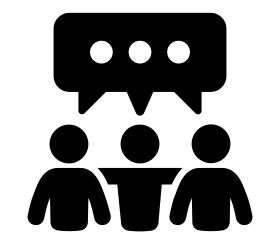



In the first half of the Autumn Term, the children will begin reading 'Krindlekrax' by Phillip Ridley. This story talks about a young boy who overcomes his fears to prove he is a hero himself. This story will allow us to follow a range of genres, such as letters and information/non-chronological reports. In the second half of the term, the class will read 'Charlotte's Web' by E.B. White. This story talks of Wilbur, a little pig who becomes famous with the help of his clever friend Charlotte and their chatty animal neighbours. This story will allow us to investigate writing genres such as balanced arguments, persuasive texts and narratives. Within their SPAG lessons, the children will continue to learn and further apply their prior and new knowledge. They will continue to be exposed to ambitious, descriptive language, which will provide them with opportunities to enhance their independent writing.

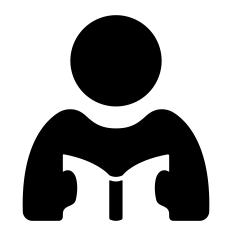

For the spring term, the children will be focusing on multiplication& division, length & perimeter, fractions, mass and capacity.
They will further develop their understanding of multiples of 10, looking at greater multiples. The children will reinforce their earlier work on place value and use a range of representations, recognising that multiples of 10 end in a zero and use this fact to solve basic multiplication and division problems beyond the 10 times-table.
ln our lessons focusing on length & perimeter, the children will learn to compare units of measurement, such as metres and centimetres. They will then look at what perimeter is and how to calculate and measure this.

Within our fractions unit, the children will learn that a fraction can be seen as part of a whole and that to find a unit fraction, they divide the whole into equal parts. They will then identify the role of the denominator.
In our final topic of 'Mass and Capacity', the children will draw on their prior knowledge and will continue to explore mass in kilograms and grams before moving on to capacity. Across the term, all children will also be provided with opportunities to develop their problem-solving skills.


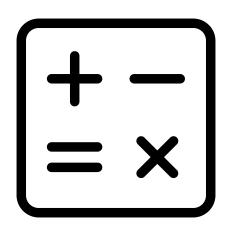



In our science lessons this term, there will be a focus on two topics; 'Forces & Magnets' and 'Light’. In our 'Forces and Magnets' lessons, the children will learn about push and pull forces, as well as the attract and repel forces of a magnet. They will develop an understanding of the different materials that can be grouped as magnetic or non-magnetic and the purposes of different magnets in everyday life.
In our 'Light' lessons, we will be discovering how light comes from a source, while beams of light bounce off some materials (reflection). They will also be identifying how light affects different materials. We will consider the dangers of the sun and how we can protect ourselves from these.




In our geography lessons, the children will be learning about the UK and a European country, making comparisons between them. The children will be finding both countries on a map, naming which continent they are on, identifying their capital city, as well as locating and describing key physical features in both countries (including rivers, mountains, coasts) . Later this term, the children will be completing a local study of Staines. Throughout this study, the children will apply their 'field work' skills to enhance their learning. We will be looking at how the local area has changed over time and what the uses of the land are. To research this further, the children will be devising their own questions about the local area and finding different ways to find the answers. The children will develop a range of geographic skills this term and apply these in different ways.


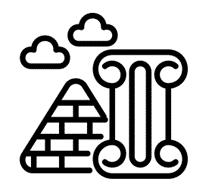

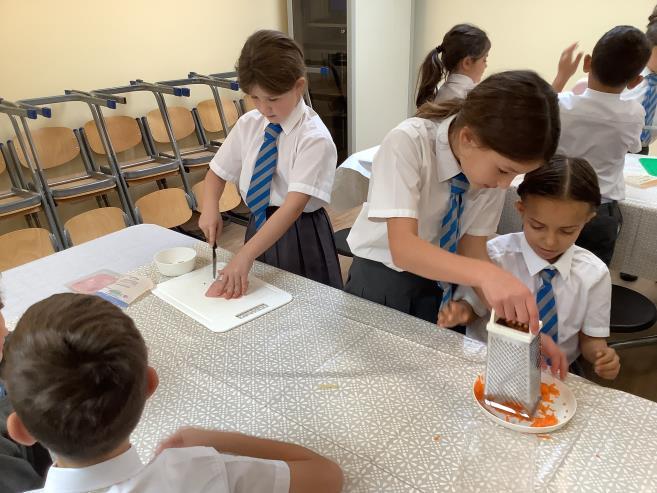

Our design and technology topic this term focuses on 'Cooking and Nutrition'. The children will investigate the main food groups and the different nutrients that are important for health. The children will understand how a variety of ingredients are grown, reared, caught and processed. They will have the opportunity to use a variety of techniques to prepare and combine ingredients safely.
In art this term we will be using the skill of drawing, with a particular focus on Anime, shading, blending and contouring. Across the topic, the children will focus on the artist Hayao Miyazaki and use his styles and techniques to invent a completely original, fictional creature and draw in Studio Ghibli style.




This term, the children will be continuing the topic 'Glockenspiel Stage 1'. This topic provides the children with the chance to learn basic instrumental skills, by playing tunes in varying styles and will be an Introduction to the language of music, theory and composition. They will then move on to focus on the song, 'Three Little Birds'. This topic presents an integrated approach to music where games, elements of music (pulse, rhythm, pitch etc.), singing and playing instruments are all linked. As well as learning to sing, play, improvise and compose using this song as a stimulus, the children will listen and appraise other reggae songs.


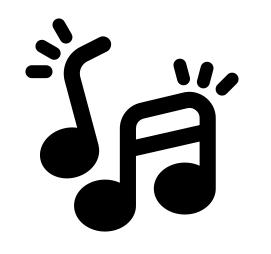



Within their outdoor PE lessons, the children will completing a range of outdoor activities such as hockey, cross country and football. They will apply basic principles suitable for attacking and defending, while learning to develop and improve their own personal best.
During our indoor PE lessons, the children are developing their skill of balance. The children will develop and apply their dynamic balance on a line and ball skills through focused skill development sessions, healthy competition, cooperative games and Personal Best challenges. During the second half of the term, the children will move onto their Dance topic. This unit will allow the children to learn and develop the skill of making shapes and circles while creating a sequence of movement with these through partnering and artistry.



This term, we are covering the strand of ‘information technology’ within our computing lessons. During the first half of the half term, the children will be looking at song composition using a music making programme. We will be looking at how to create a melody and rhythm using the software and creating our own lyrics to match the tune.

In the second half of the term the children will be Creating 2D Vector Art. This style constructs images using mathematical algorithms, capturing data in the forms of polygons, dots, and lines, along with colour data. The children will create their own image using the algorithms and layer their image to produce their final piece.
